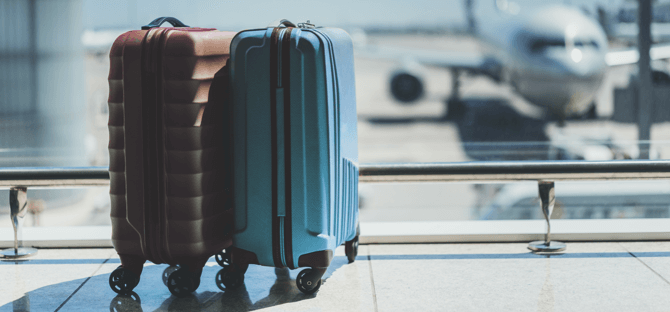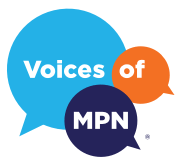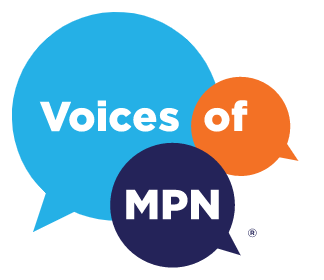Finding Strength in My Myelofibrosis Diagnosis

Author: Anand M, Community Voice Champion
Anand is a real patient who was diagnosed with myelofibrosis (MF). This is his story in his own words.
I was 13 years old when I first began to experience the symptoms that would eventually lead to my blood cancer diagnosis. Every time I would exert myself either in gym class or even simply walking home from school, I would feel dizzy, and experience nausea that would lead to vomiting, and agonizing headaches. In fact, I remember the very first instance of feeling that particularly debilitating combination of symptoms: 7th grade, French class. I asked the teacher if I could be excused to go to the washroom but before I could make it to the facilities, I vomited in the hallway. I described my new ‘illness’ to my pediatrician who chalked it up to the asthma I’d been diagnosed with a few years prior. Six long, exhausting years later, at 19, I made the switch from my pediatrician to a general physician who, upon my first visit, ran some preliminary blood tests and based on those results alone, referred me to see a hematologist within a week. A quick bone marrow biopsy later and I had my answer: myelofibrosis. I finally received the diagnosis I had longed for to explain and elucidate the horrible way I had been feeling for what felt like an eternity.
A year before I was born my parents lost a daughter, my older sister, at three months old due to a congenital heart defect and now, 21 years later, their second child was facing a potentially life-threatening illness that left them understandably devastated by the news. I, on the other hand, incongruously felt an overwhelming sense of relief. I was on the cusp of turning 20, informed I had an illness usually affecting those over the age of 50, and would need to undergo a treatment plan that would include a bone marrow transplant. But the fact I could come out on the other side cured of the illness that had plagued me for so long was, for me, cause to celebrate. My parents were overcome both with grief for the diagnosis itself and guilt for the fact they had not been aware of my affliction or able to help me sooner.
Referred to the cancer clinic at the major hospital in our city, my parents and I met with a terrific team of healthcare professionals who were able to answer the virtually infinite number of questions we had, which we supplemented with occasional research on the Web. Unfortunately for us, this all took place way back in 1999–2000, which made information online hard to come by. To anyone attempting to deal with and confront a diagnosis similar to mine, my key piece of advice would be to learn as much as possible—not only about the illness itself, but all available treatments as well—to ensure you’re able to remain a strong advocate for yourself. And be sure to have your medical team explain every step of the process, including donor matching, chemo side effects, hospital recovery period, out-of-hospital recovery, and everything in between. Furthermore, even though it may sound terribly clichéd, try to stay positive, even when things seem daunting, and be sure to surround yourself with family and friends to act as your support when maintaining an upbeat attitude may seem impossible to do.
Although the 4-5 month aggregate hospital stay was difficult, challenging, and, at times, painful, the worst, I didn’t know at the time, was yet to come. After returning home from the hospital and requiring isolation to allow my immune system to reestablish itself as my blood counts came up, I faced an almost unyielding isolation and solitude with only my parents and brother for company. My friends were attending school, socializing on the weekends, and living their lives—while I was stuck at a standstill—waiting to finally be well enough again to get back to the life I once led. Plus, this was years before smartphones, video chat, and all the other modern modes of communication we take for granted today, which I would use to its fullest to stay in touch with friends. Were my diagnosis to take place today, I would also most definitely research support groups online to share my experiences with, and learn from, others in the same proverbial boat. Depression during that lengthy recovery period can also arise. I was able to have it treated through a referral from my cancer team. Don’t refrain from seeking the help you need. and from using technology and other advances to build your community when you are feeling alone.
Following the lengthy recovery period, I moved to Japan, lived my life, and didn’t give my medical experiences much thought. Recently, however, I’ve been filled with regret that so many years had passed before I received a diagnosis. I spent a long time—my formative years, when I should have been an active and exuberant teen—fighting against an unknown and invisible enemy. Now, reflecting back on those lost years, I know it is vitally important for people with symptoms like I had to receive a correct diagnosis, and treatment, as early as possible.
Overall, once diagnosed, my treatment process went fairly smoothly: my one and only brother managed to be my marrow donor, despite the slim 1-in-4 odds he would; my stay in the hospital was mostly uneventful, save for a viral infection; and I had my parents by my side every step of the way, without whom I would have never been able to survive. Having been so lucky, I am more than mildly happy to share my story.
Related Articles







